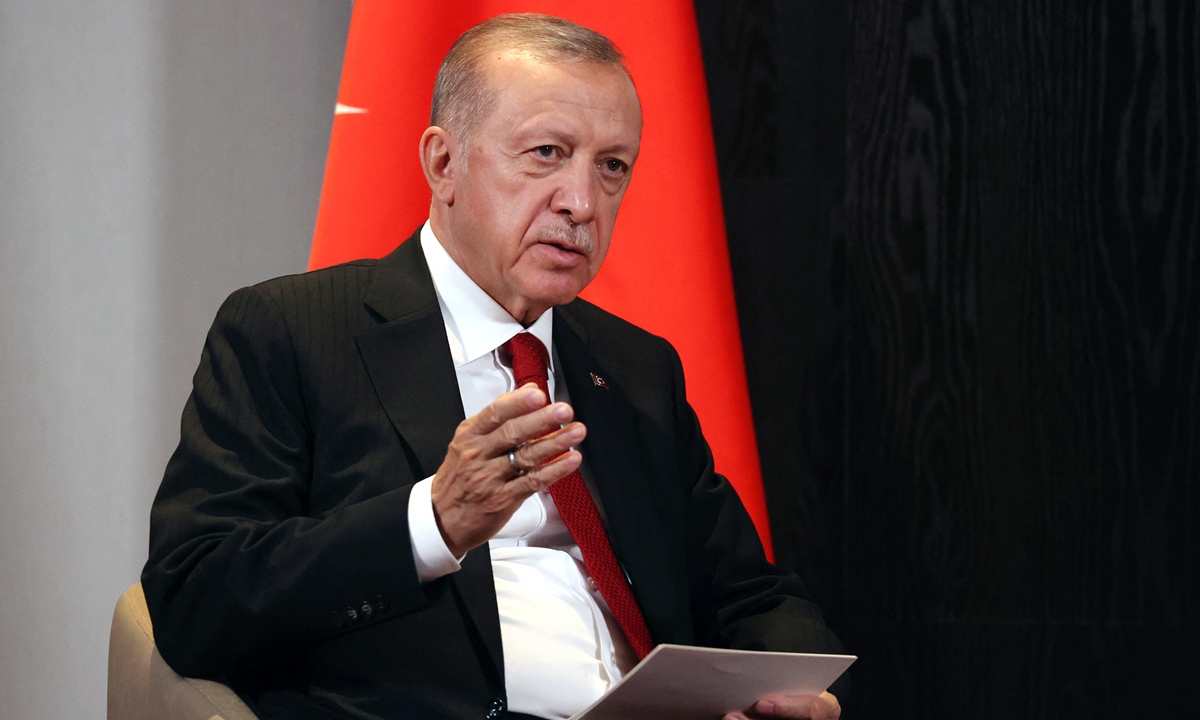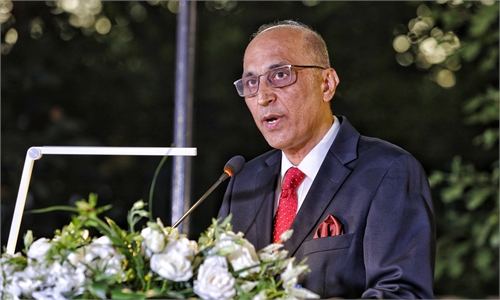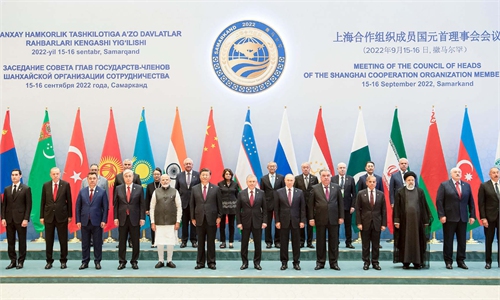
Turkish President Recep Tayyip Erdogan attends a meeting with Russian President on the sidelines of the Shanghai Cooperation Organisation (SCO) leaders' summit in Samarkand on September 16, 2022. Photo: AFP
The repeated frustration in integrating into the West has made Turkey ramp up its efforts to "Look East."
Turkish President Tayyip Erdogan reportedly said he was considering membership of the Shanghai Cooperation Organisation (SCO) for his country. A successful bid would make Turkey the first member of the NATO to join the Eurasian group.
Turkey now has an increasingly clear picture on how difficult it is for Turkey to integrate into the West. Turkey first applied to join the EU in 1987 and received candidate status in 1999 but talks have since stagnated. This makes Turkey feel a strong sense of alienation from European countries, especially in comparison to Ukraine.
At the request of Ukrainian President Volodymyr Zelensky for his country's immediate admission to the EU at the end of February, The European Commission responded by recommending Ukraine be elevated to candidate status (along with Moldova), and in June, the 27 EU leaders unanimously approved that recommendation. Such an instant response must have frustrated Turkey.
By contrast, Turkey's "Look East policy," from the perspectives of economy, politics and culture, has a relatively larger space to operate. These could explain why Turkey shows interests in joining the SCO.
Whether Turkey ultimately becomes a member state of the SCO depends largely on how durable such intent can last, said Tian Wenlin, a research fellow at the China Institutes of Contemporary International Relations. Tian stated that despite both being Middle Eastern countries, Turkey's situation is very different from that of Iran, which officially became a full SCO member at the recently concluded SCO summit. Whilst Iran has always been suppressed by the US and the West, it has a stronger willingness to become a member of the group than Turkey. As for Ankara, Turkey's ties with the SCO also relies on where its future relations with the West will head.
At the SCO summit, China and other SCO members granted Egypt, Saudi Arabia and Qatar the status of SCO dialogue partners, and reached an agreement on admitting Bahrain, the Maldives, the United Arab Emirates, Kuwait and Myanmar as new dialogue partners. It is noticeable that an increasing number of Middle Eastern countries have sought closer ties with the SCO. It also shows that the appeal of the SCO is rising.
The SCO pursues a new security concept with the cooperation principles of non-alignment, non-confrontation, and non-targeting of third parties and underlines mutual trust, mutual benefit, equality, consultation, respect for the diversity of civilizations, and a pursuit of common development among its member states. This will be beneficial to all member states, observers and dialogue partners. Unlike Western blocs such as the EU, which seek to dominate other countries with a single value system and force candidate countries to make significant changes in order to join their group, the SCO is very inclusive.?
Over the years, the SCO's practices have shown that it never interferes in the internal affairs of its member states, whilst also being beneficial for stabilizing both internal and external political and economic environments.
The world today is undergoing unprecedented changes unseen in a century. These changes are emerging in an accelerated transition, whilst geopolitical conflicts are becoming more intense than ever. At this time, countries that have joined or expressed interest in SCO membership are all developing countries, which have particularly strong demands for stability and development. The international system dominated by the West, including the expansion of NATO, is characterized by the creation of conflicts and wars.
After the 9/11 attacks, the US' 20-year counterterrorism policy in the Middle East has demonstrated that it has been far more destructive than constructive to the region. This can explain why some Gulf countries such as Bahrain, Qatar, and Saudi Arabia, which have relatively close ties with the US, have shown an interest in the SCO, which suggests that the appeal of the US-style governance model is declining across the world.
The author is a reporter with the Global Times. opinion@globaltimes.com.cn



